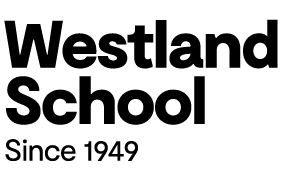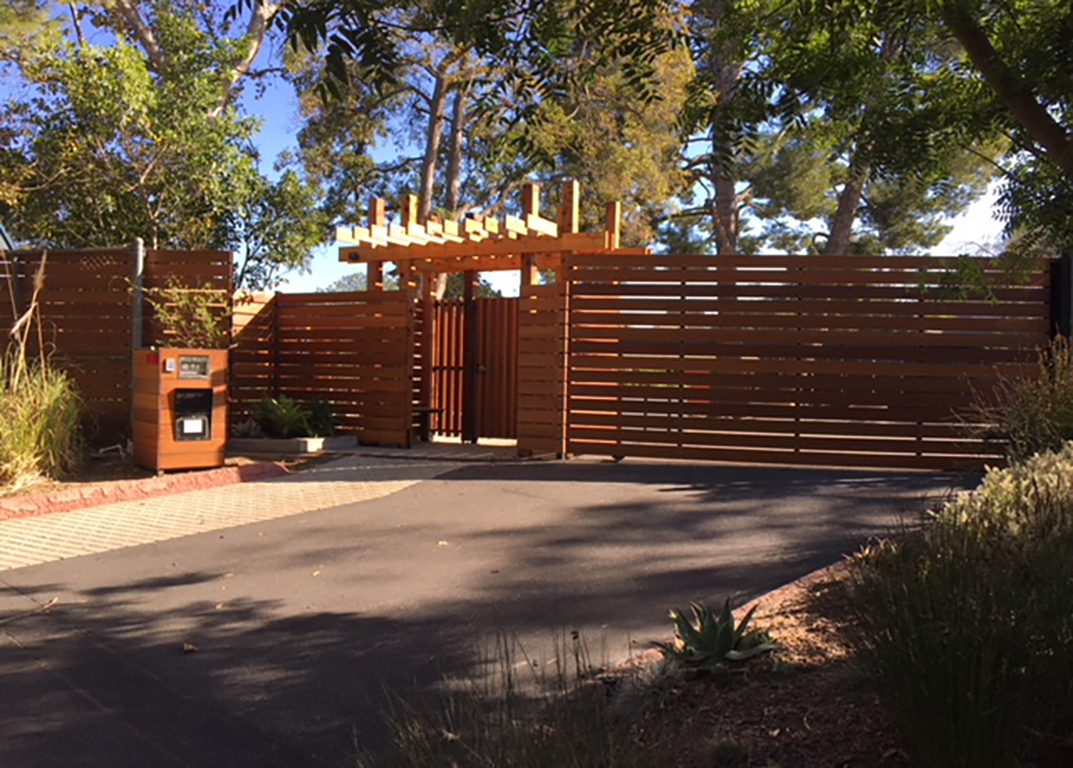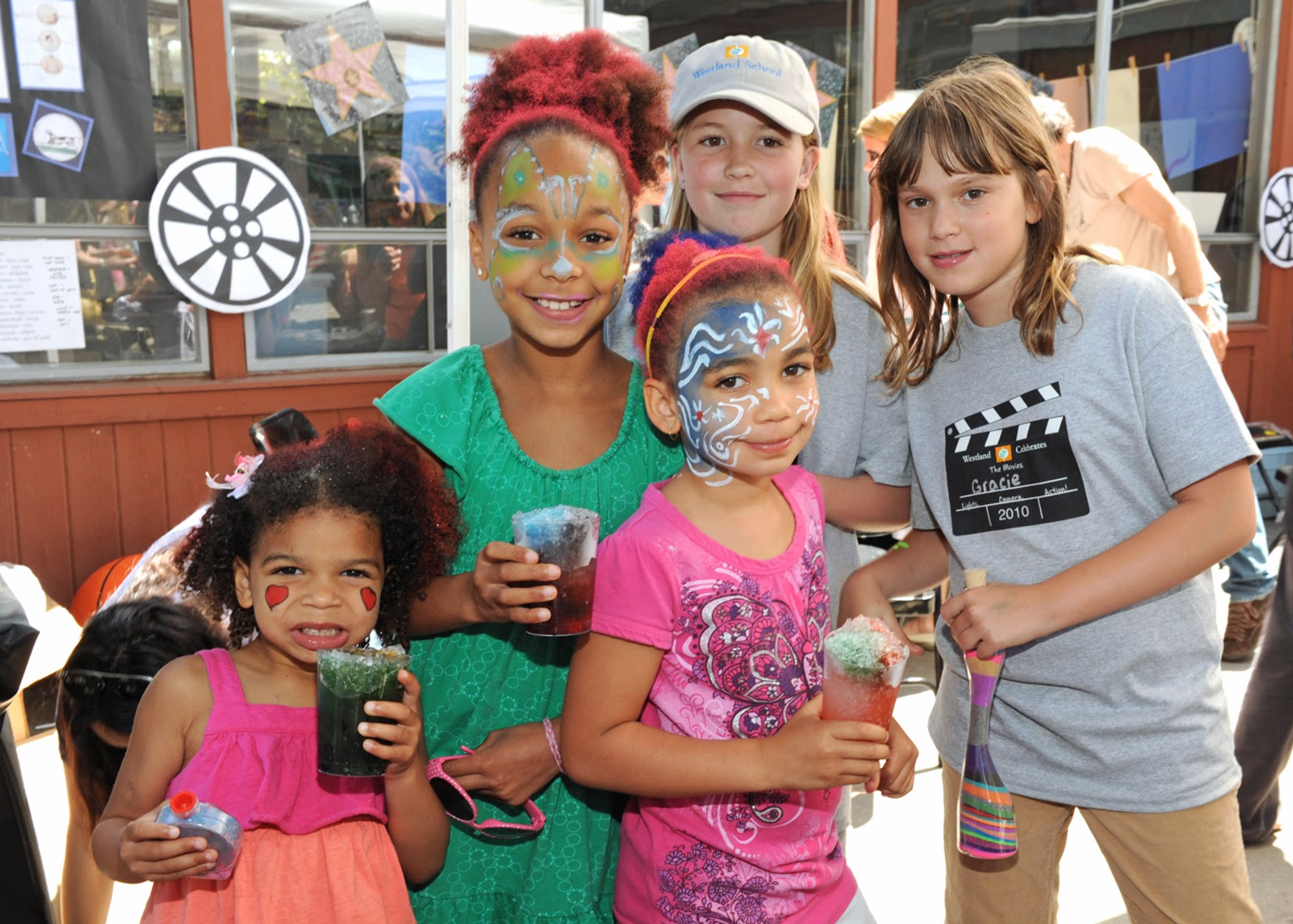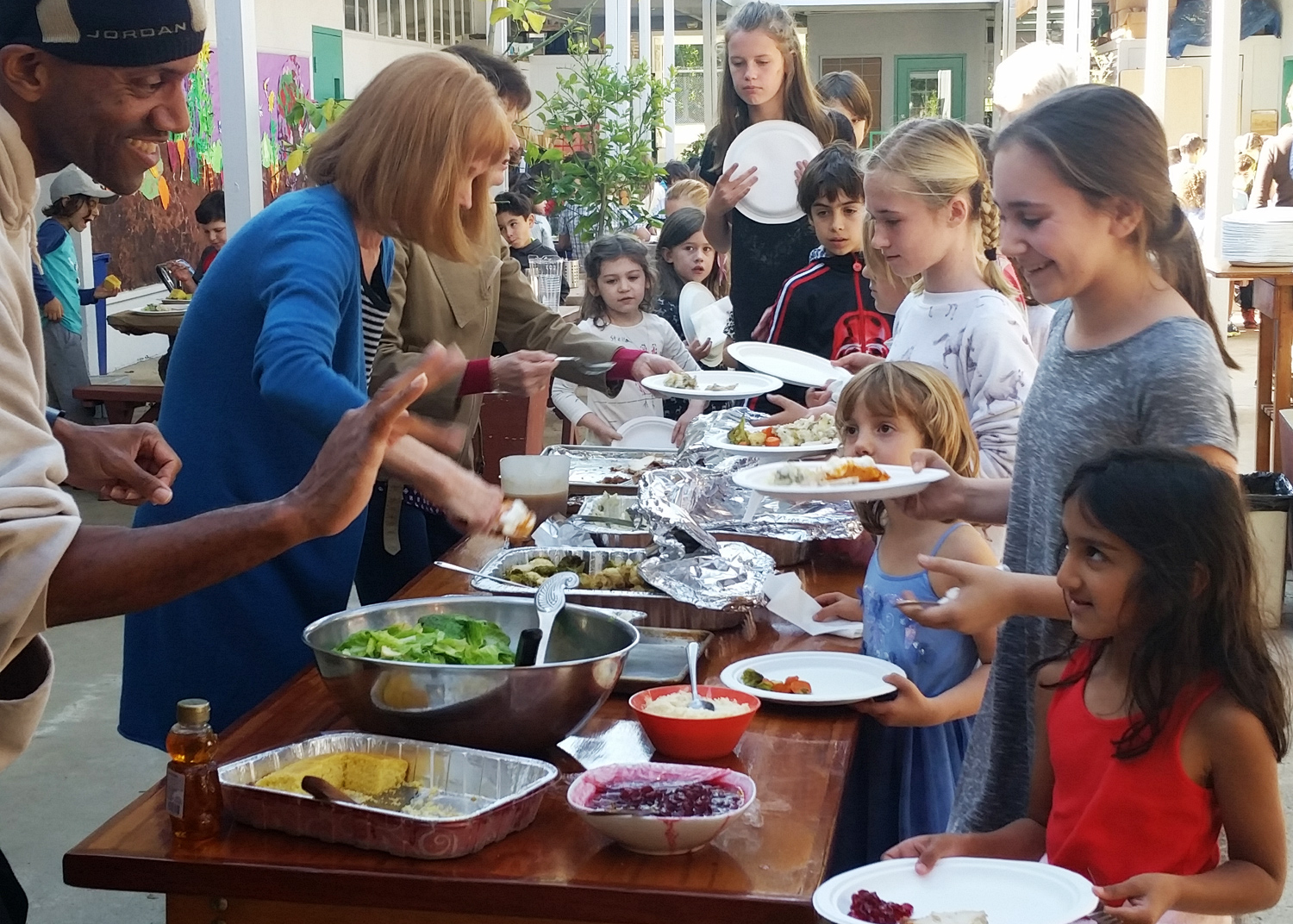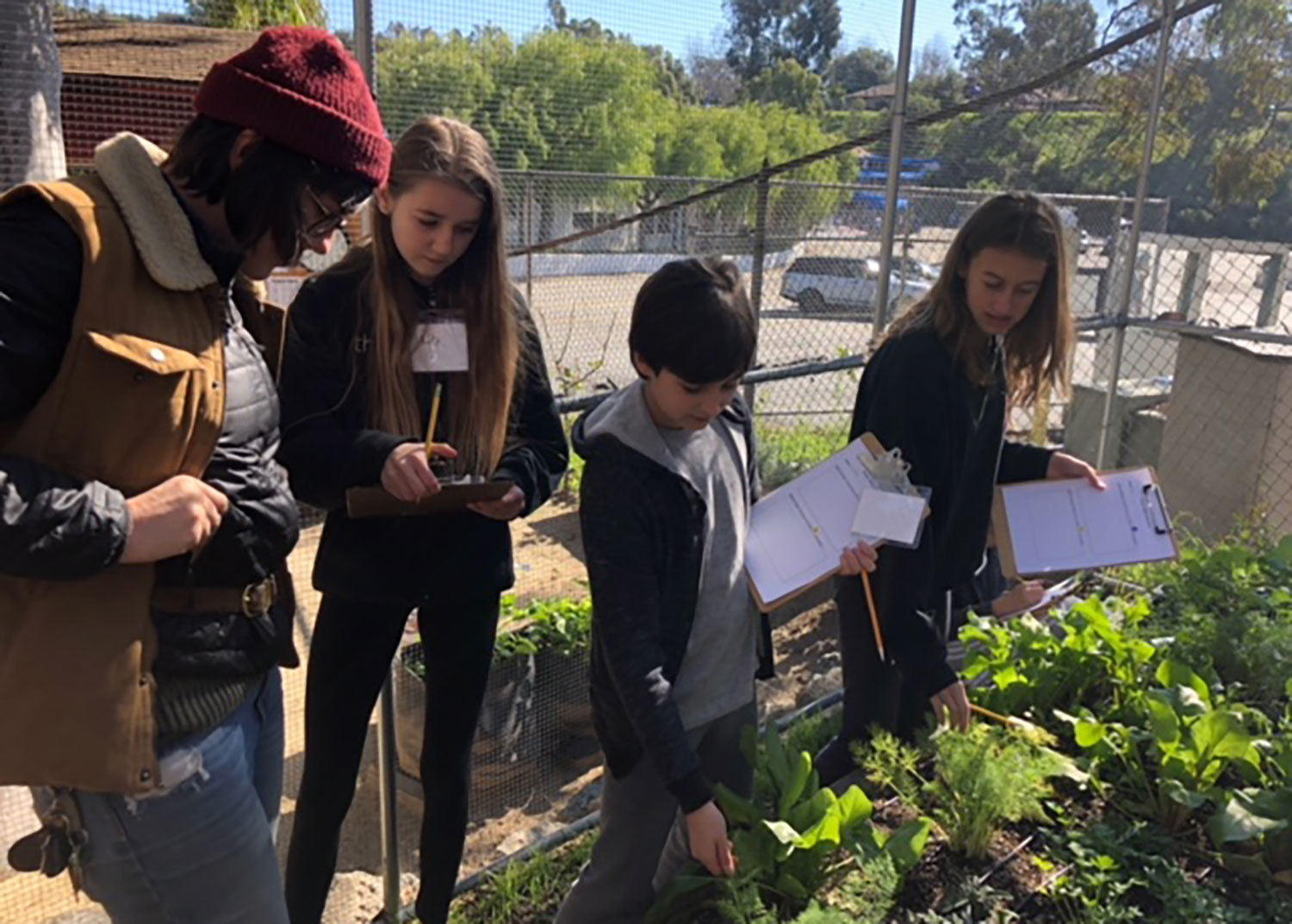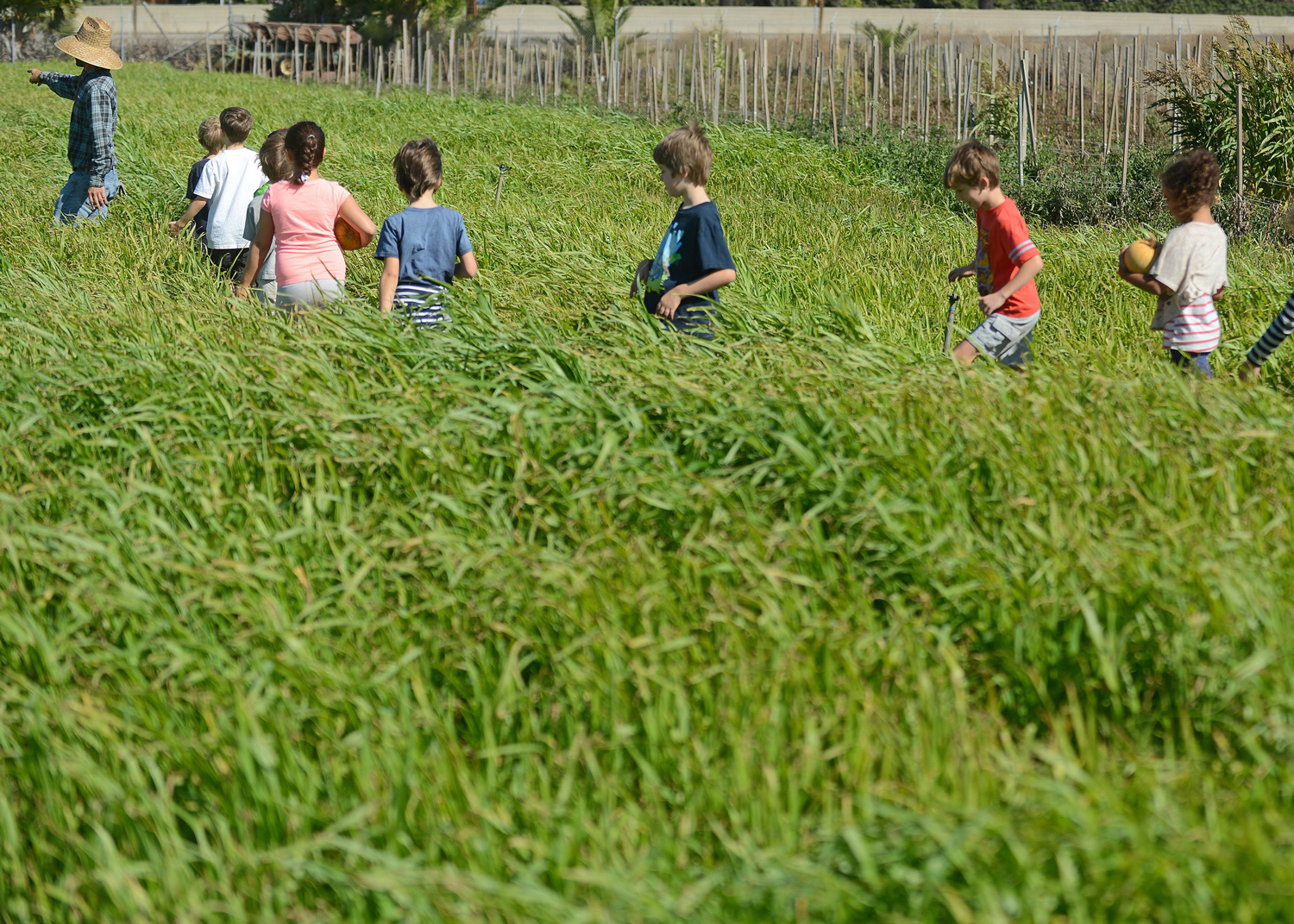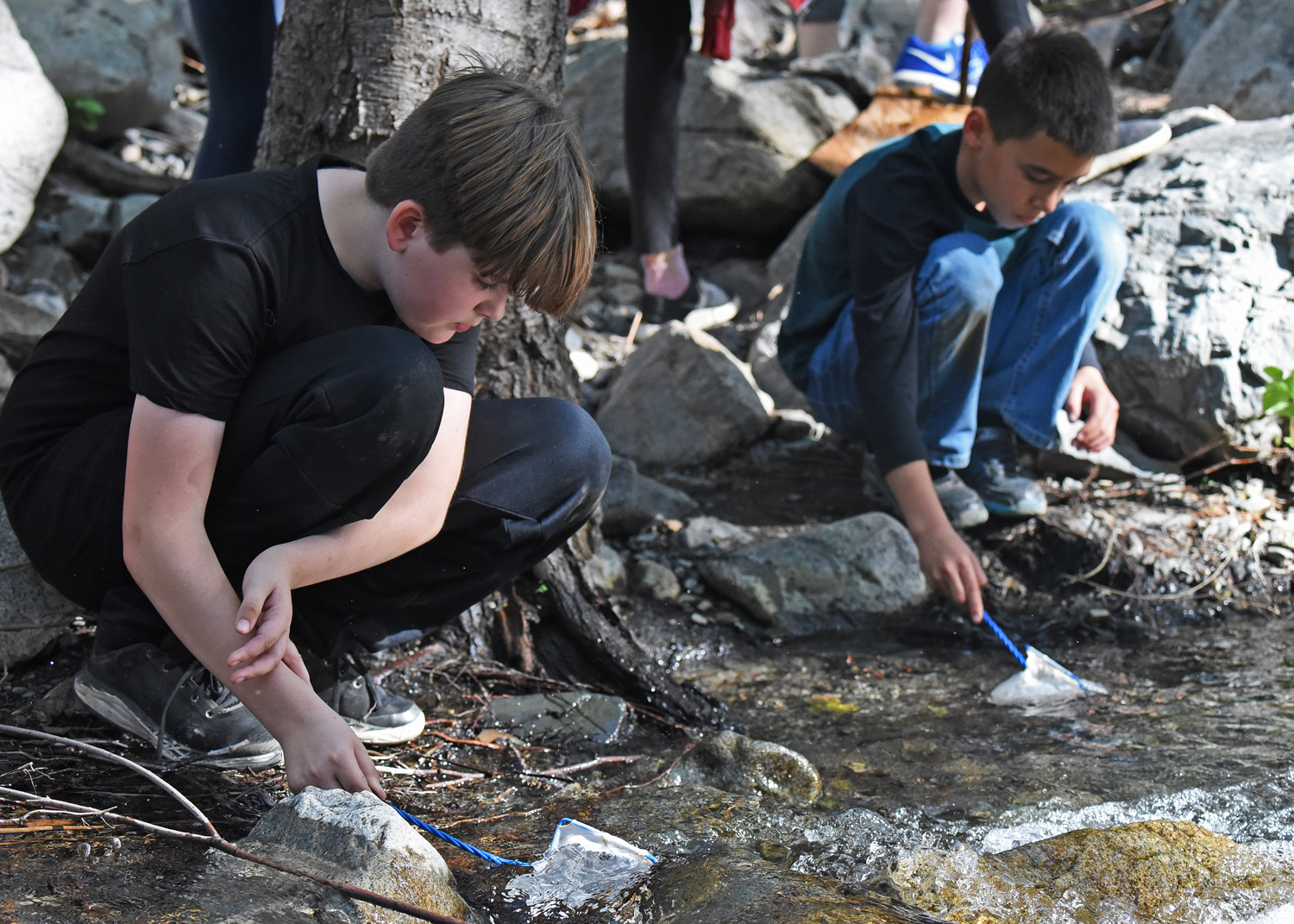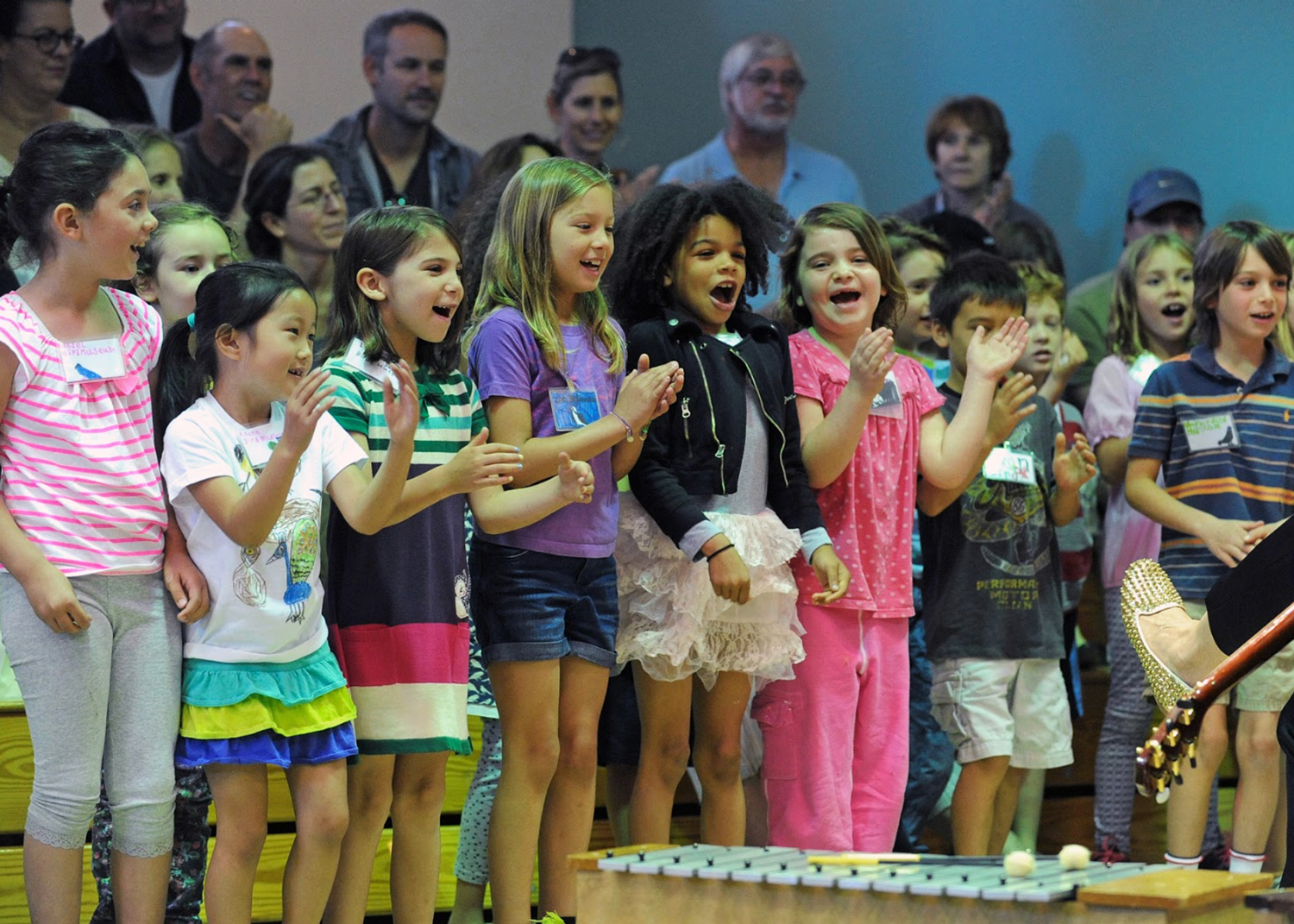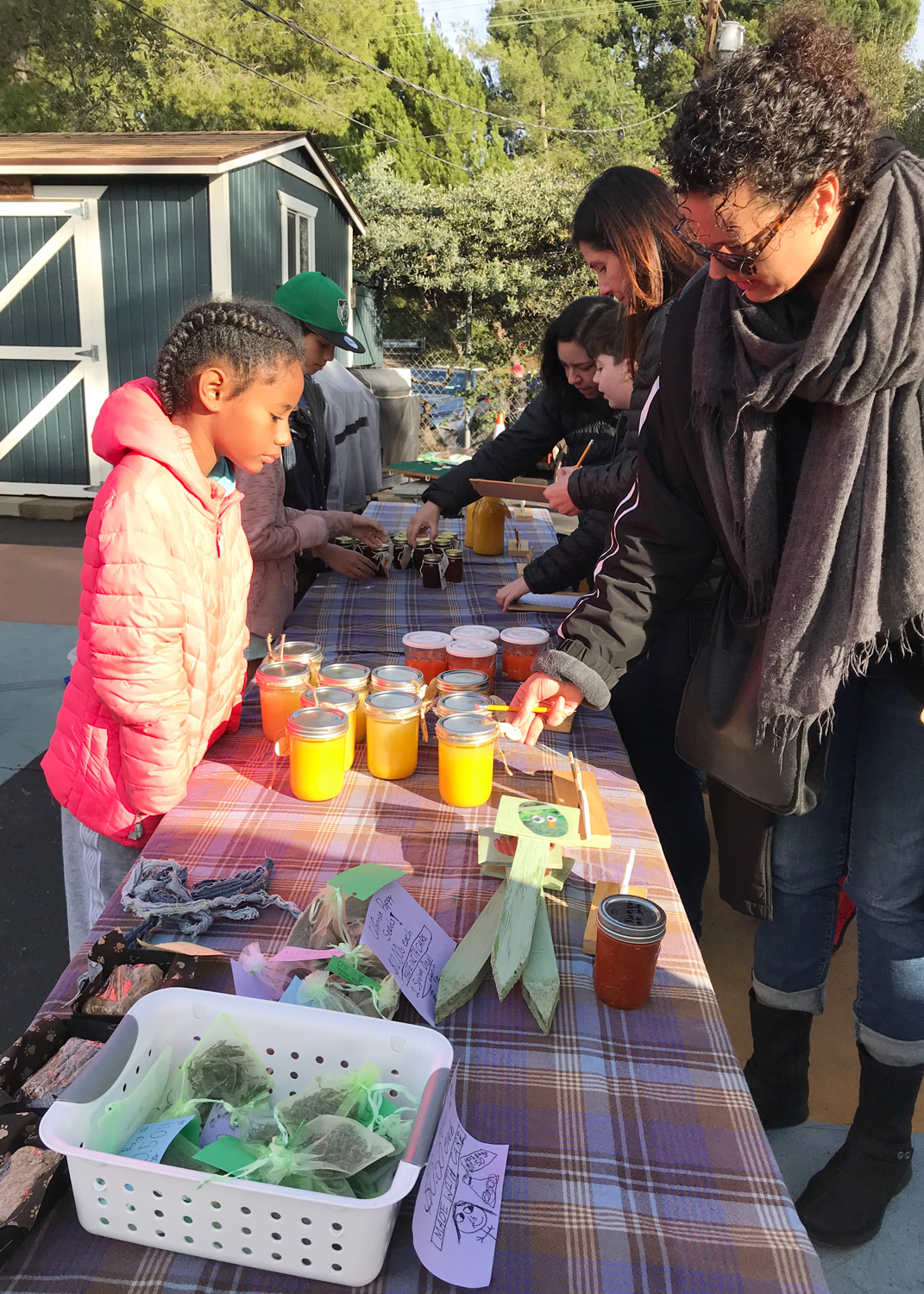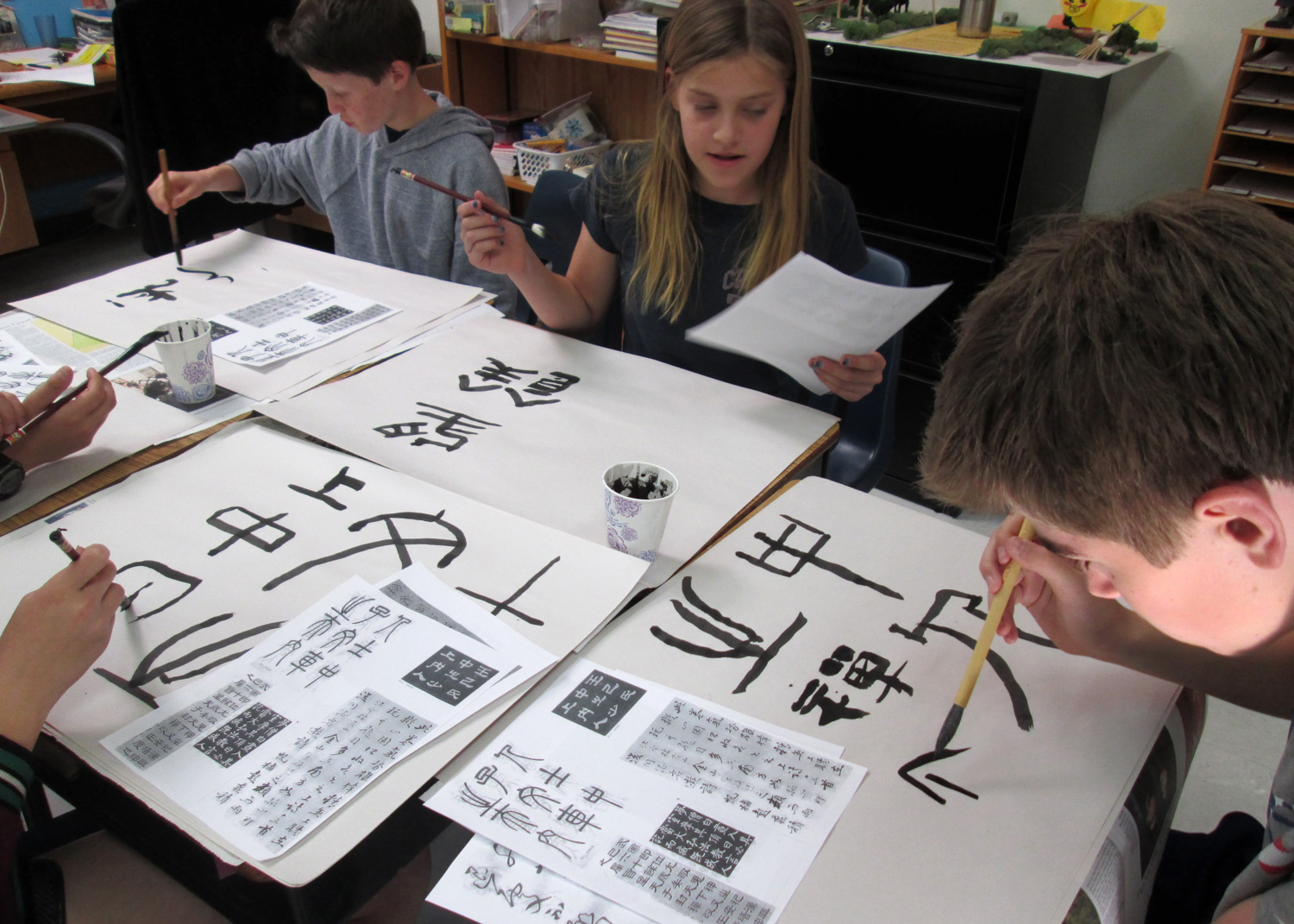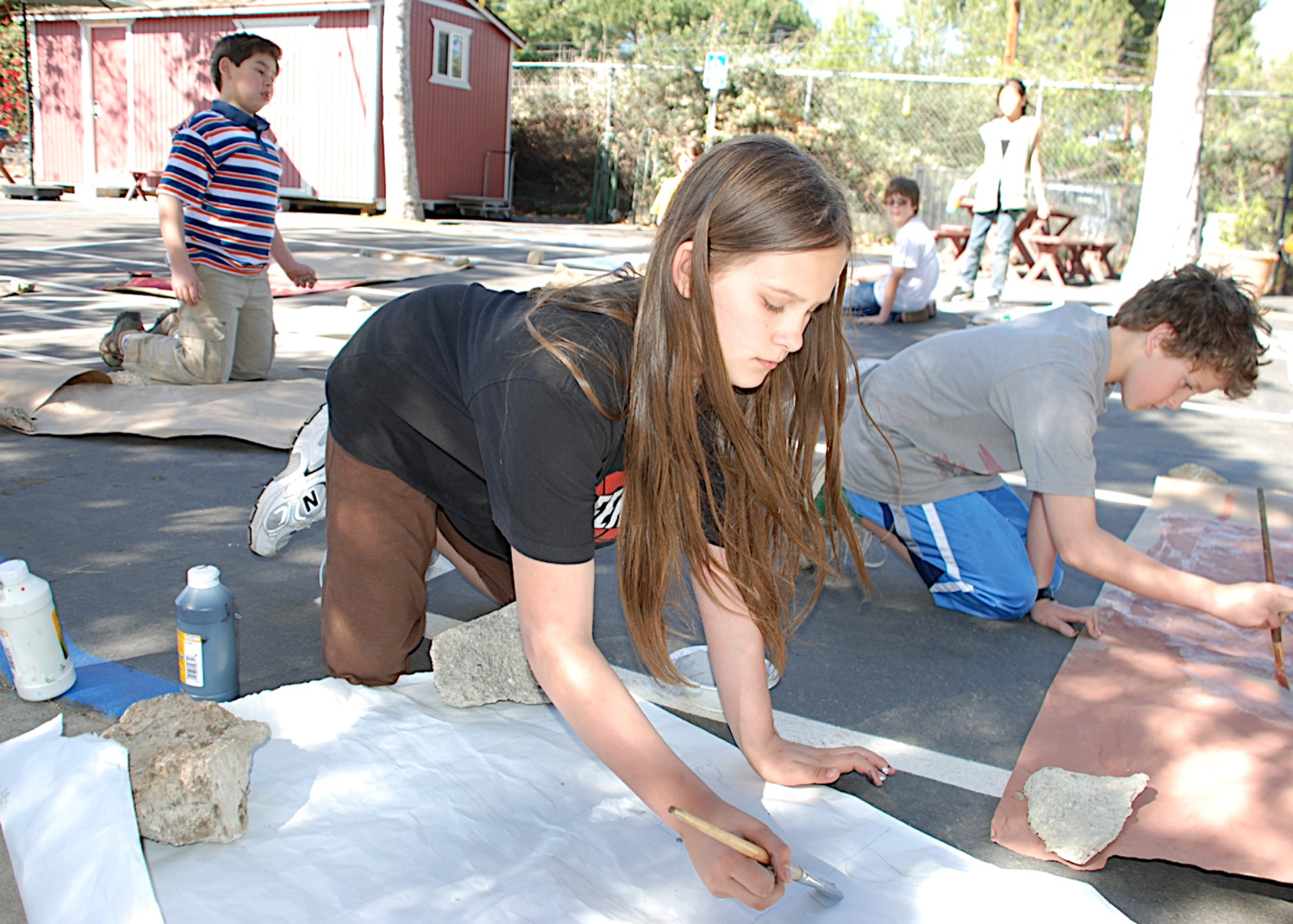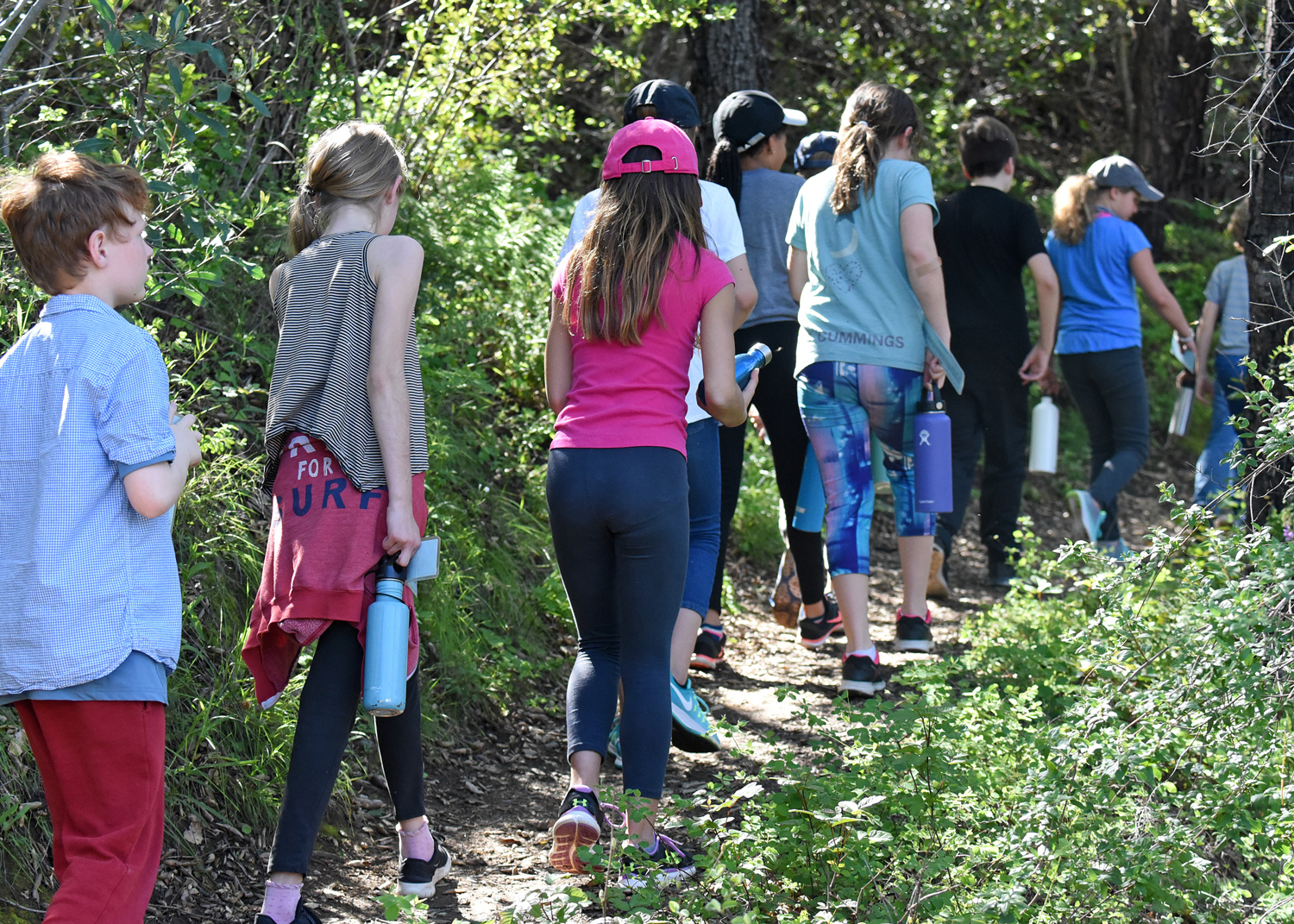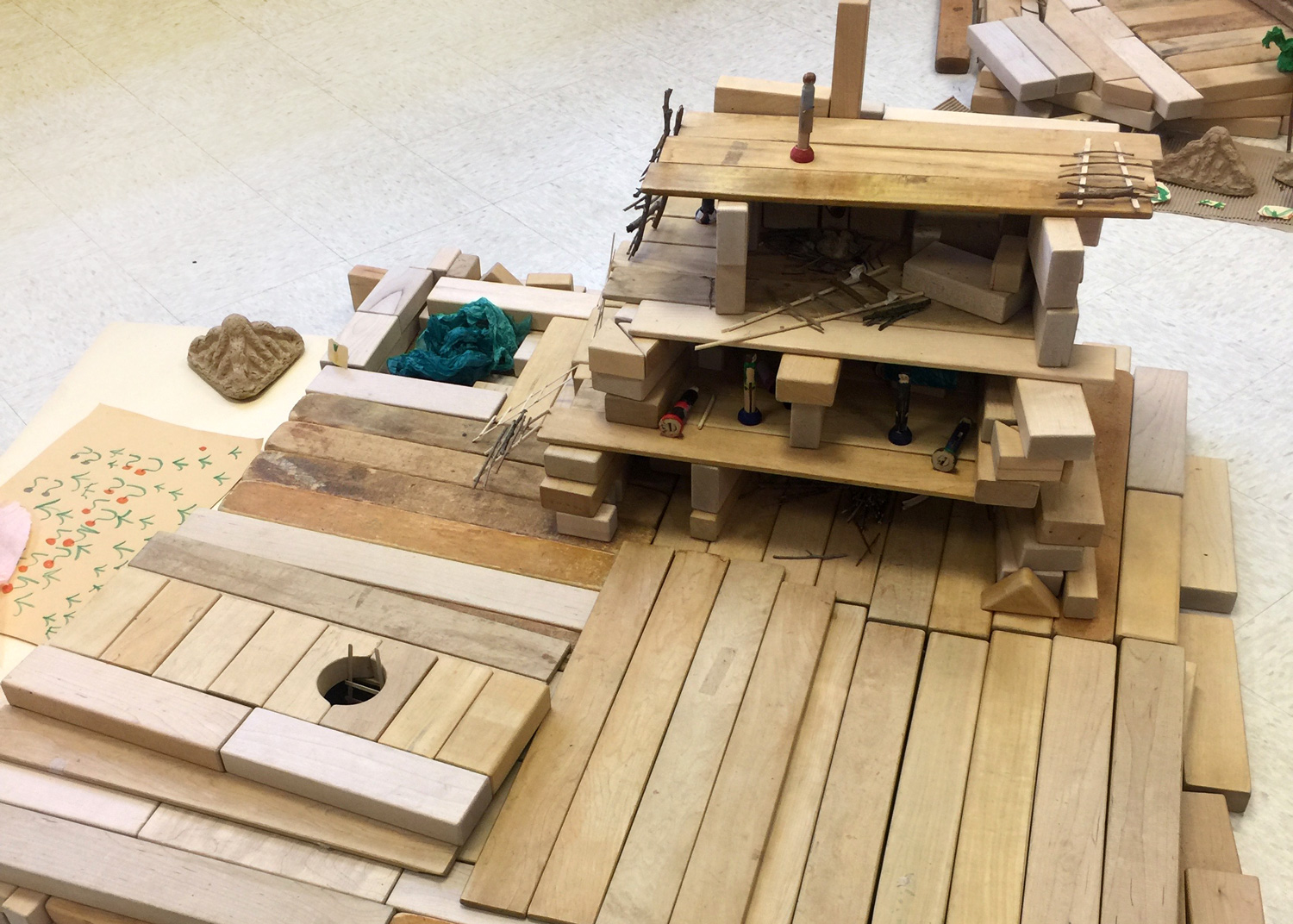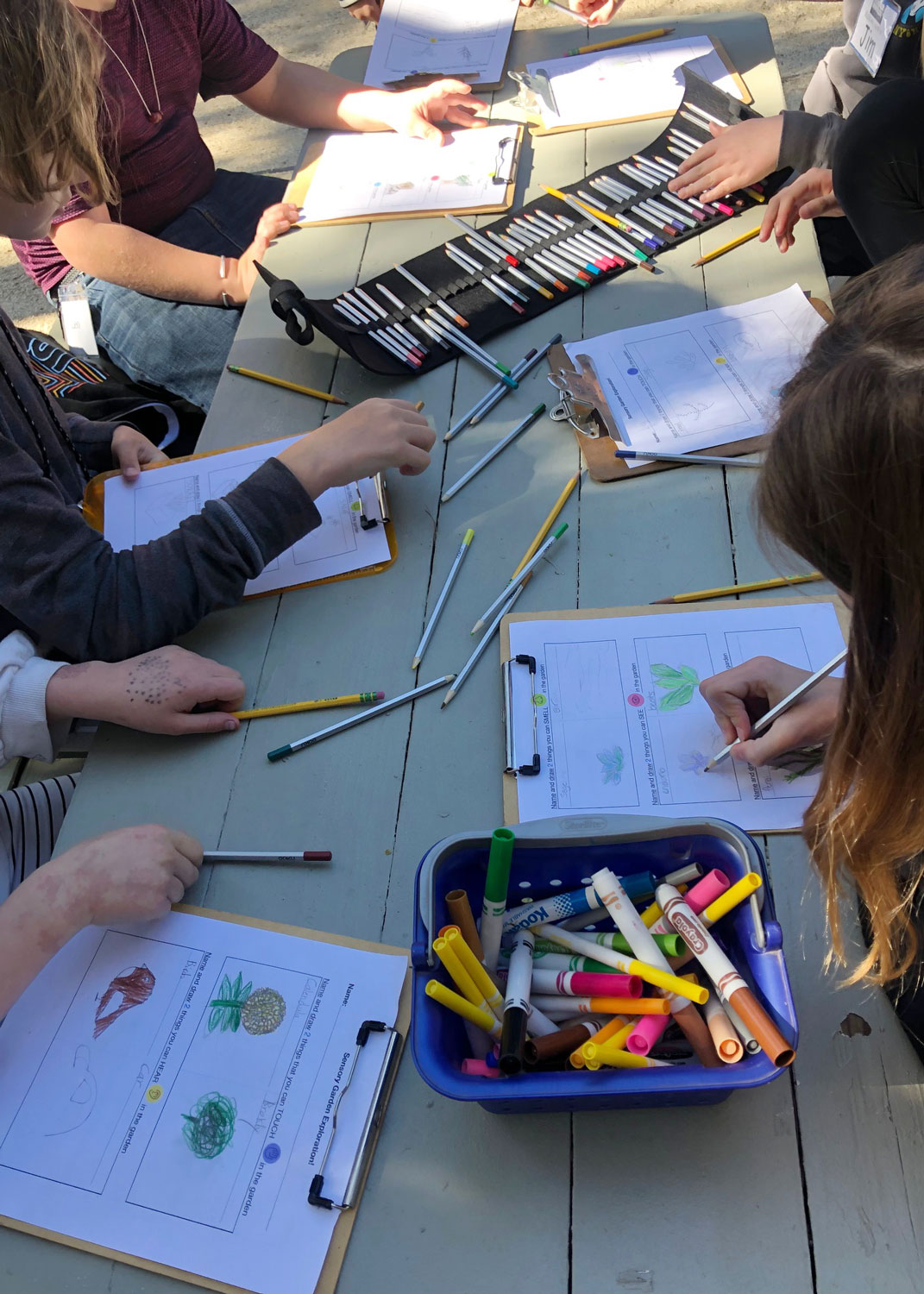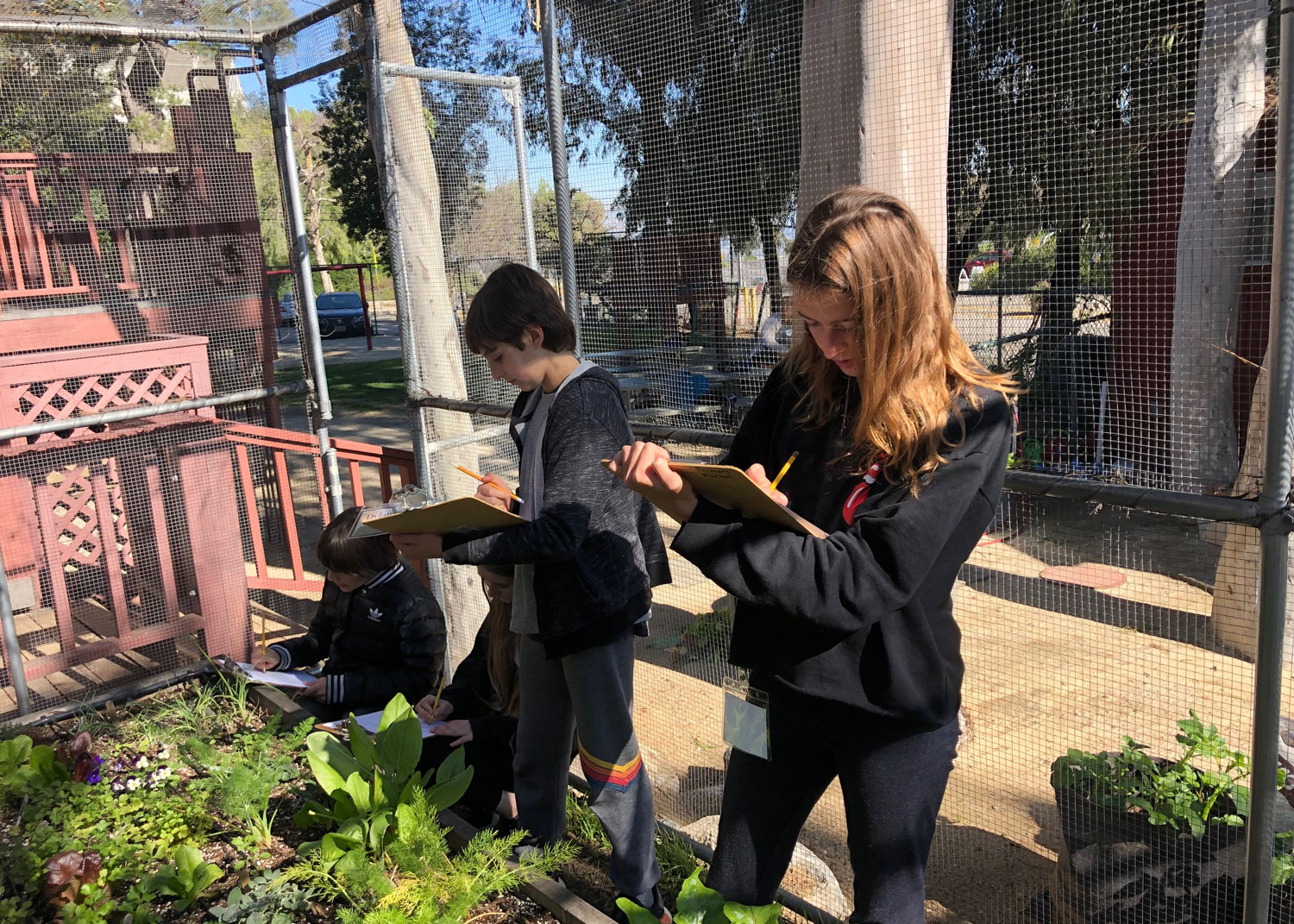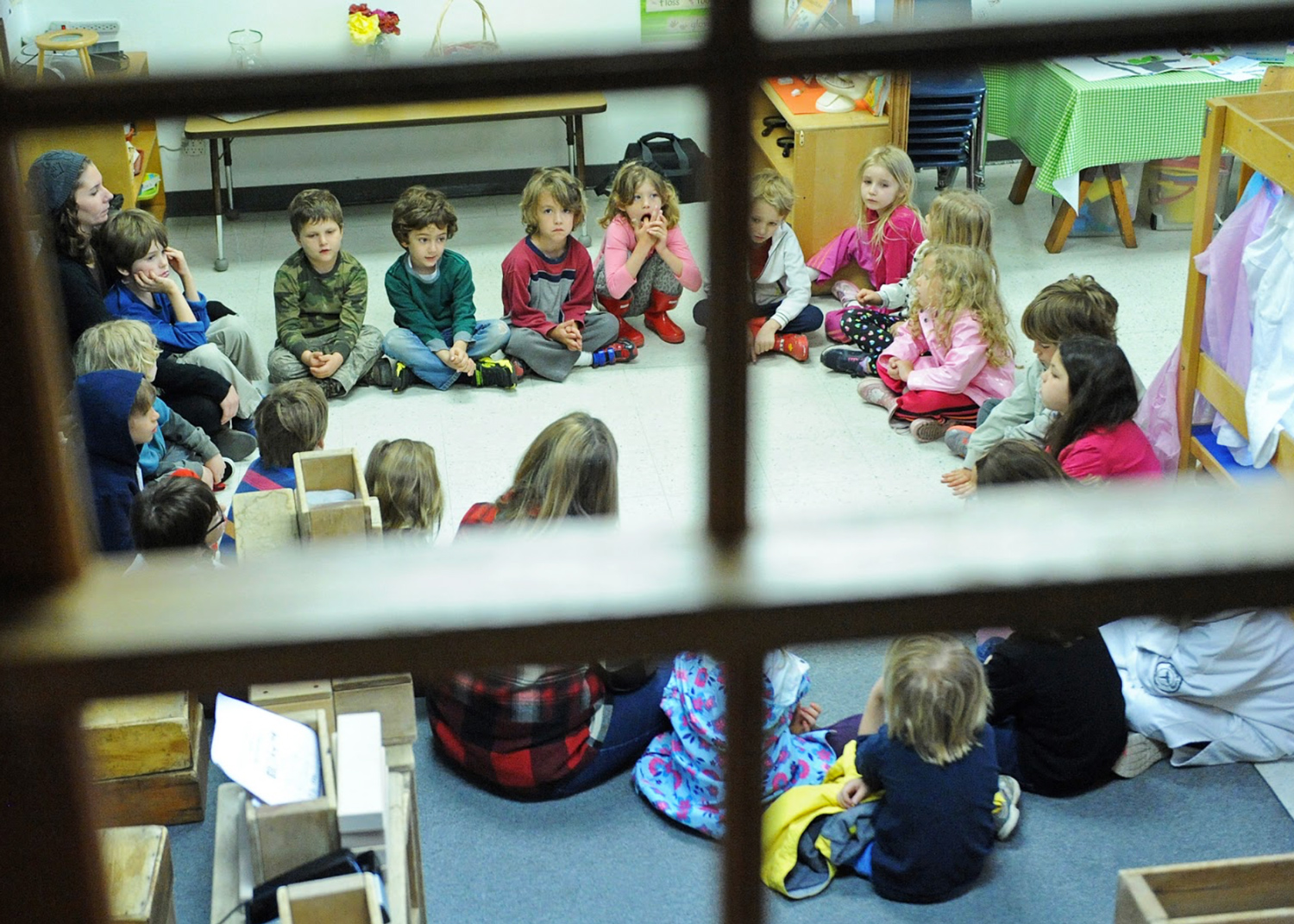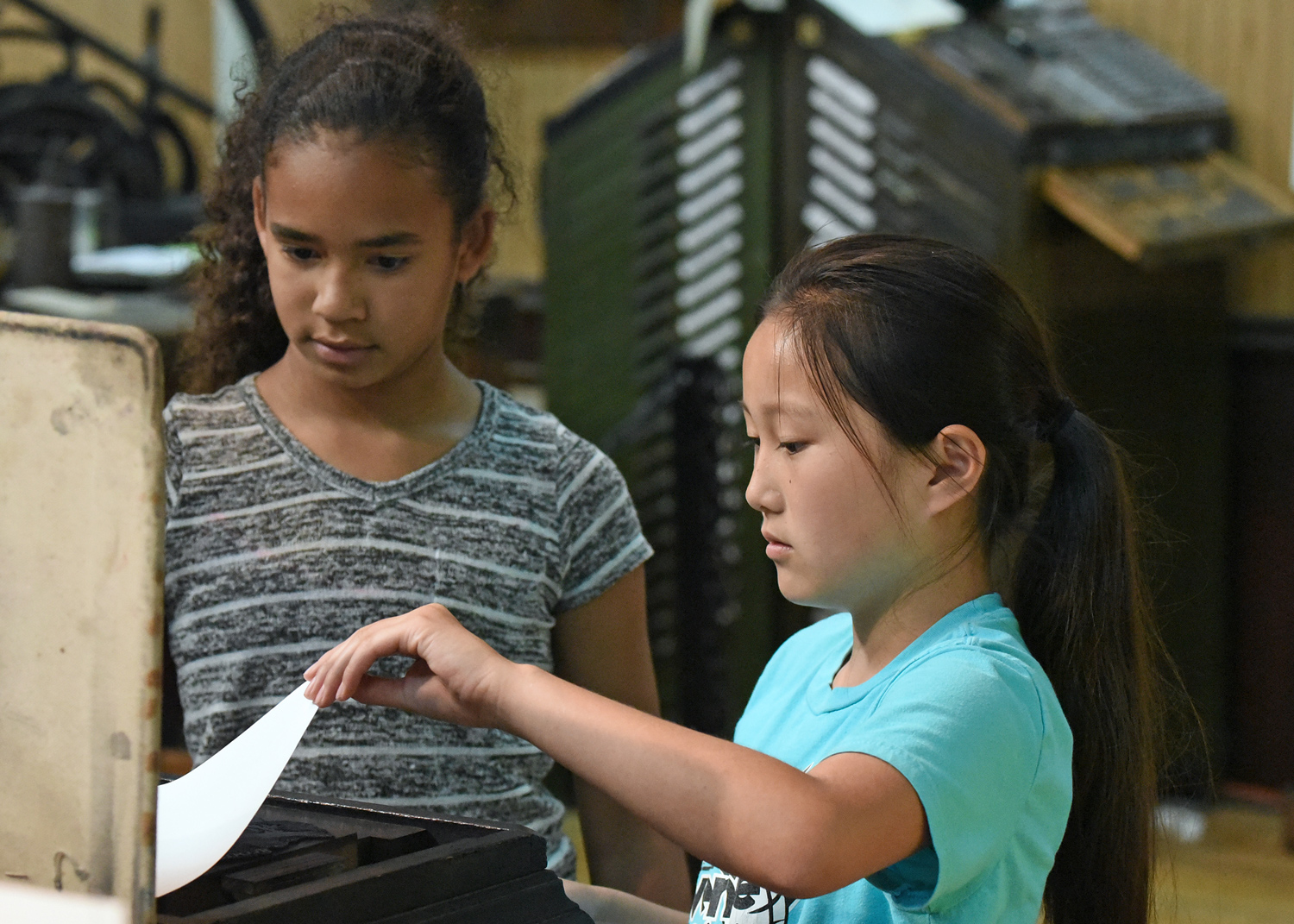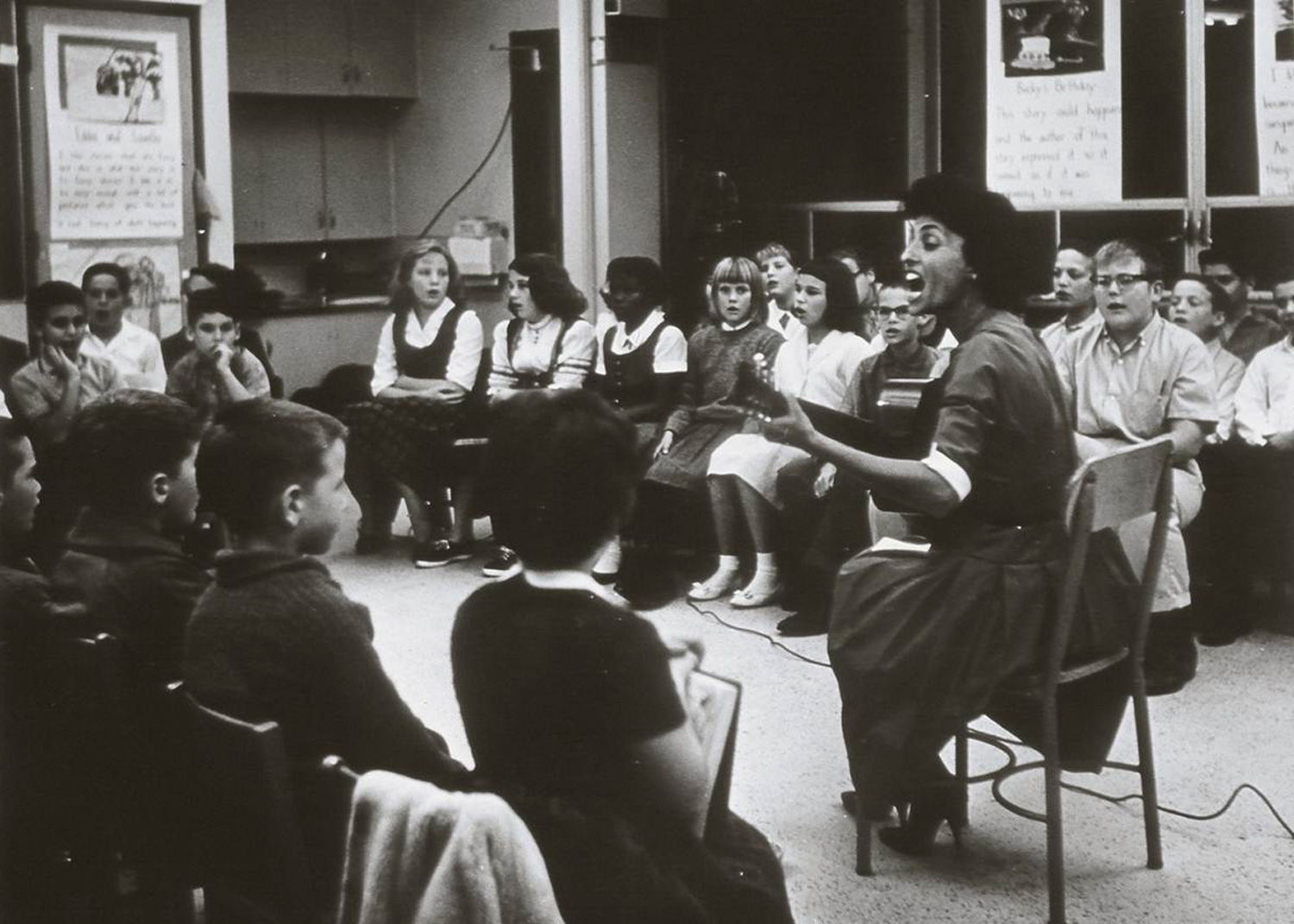
Who We Are
Our social studies based approach integrates and connects language arts, math, visual arts, science, music, and woodworking.
Block building powers the work children do at Westland. The notion of using smooth, simple wooden shapes as learning tools dates back to progressive education of the early 20th century, and we’ve run with this idea, integrating block play throughout our curriculum. It is essential to explore the real world during social studies units, which is why Westland students go on frequent field trips, where classroom concepts come alive. Back on campus, children recreate and share their experiences through building, culminations, artwork, and journals.
Our Community
Progressive educator Deborah Meier stated, “If there’s one thing that children are attuned to, it’s how their parents are seen by other people.” At Westland, children see their parents as essential community members. The entire school regularly comes together for Sings, where students, teachers, and parents sing together. Sings also offer an oral bulletin of what’s going on at Westland, when students share experiences, projects, and activities. Our community is not a loose network of families; it is adults working, having fun, sharing, and learning together. Through participation on committees, driving on field trips, cooking or baking for our Friday Hot Lunch program, attending parent education evenings, and, Sings, Westland parents model the habits of learning and participation their children are developing.
Approximately 130 students in six multi-age class groupings, kindergarten–6th grade.
Approximately 22 students per class group with a head teacher and an associate teacher.
Head teachers have an average of 24 years of teaching experience.
40% of our students are children of color.
40% of our students' families will participate in our Flexible Tuition Program ('20-'21).
“If there’s one thing that children are attuned to, it’s how their parents are seen by other people.”
Our Campus
Children become self-motivated, enthusiastic learners through real-world experiences that make learning relevant to them. Our social studies–based approach integrates and connects the language arts, math, visual arts, science, music, and woodworking.
John Dewey wrote, “To be playful and serious at the same time is possible, and it defines the ideal mental condition.” At Westland, work and play coexist on a campus that is scaled for children, where fields, gardens, a pond, pathways, and play yards invite wonder. The environment is warm, child-centered, and purposefully connected to the outdoors. Children engage with their campus, care for it, and learn from it.
Our History
From its beginnings, Westland's goals were to educate children in a free-inquiry atmosphere inspired by the philosophies of John Dewey and Jean Piaget.
In 1949, a group of progressive educators asked, “What is best for children?” and a group of parents pondered, “What education do our children deserve?” Their questions gave birth to Westland School over 70 years ago.
They were risk takers, passionate in their hopes for a better world, and certain that this world could begin by educating their children in a humanistic, democratic way. They understood that youngsters displayed an innate joy of freedom in learning and were certain that a mode of education existed that could retain and heighten the pleasure of mastery while simultaneously instilling values and a feeling of responsibility to the class, the school, the community, and the world.
During the time of Joseph McCarthy, Westland became a safe haven for children and spouses whose fathers and husbands were sent to jail for refusing to speak before the House Un-American Activities Committee. Today, Westland is a modern safe haven, an institution where democracy is practiced, where communicating across differences is encouraged, and where community is integral.
Our Administration
Melinda Tsapatsaris
Head of School
schooloffice@westlandschool.org
Rasheda Carroll
Assistant Head of School
rcarroll@westlandschool.org
Jennine Rodriguez
Assistant Head for Teaching, Learning and Development
jrodriguez@westlandschool.org
Carole Barber
Director of Finance and Operations
cbarber@westlandschool.org
Debbie Lopez
Registrar/Office Manager/Assistant to Head of School
dlopez@westlandschool.org,
admission@westlandschool.org
Victoria Candelaria
Finance/Office Assistant
vcandelaria@westlandschool.org
Our Board
Westland School’s Board of Trustees safeguards our mission, ensures the long-term financial health of the school, plans strategically for our successful future, and supports and evaluates the head of school. The board is comprised of current parents, alumni parents, two teachers, and appointed members from the community. The entire Westland community participates in an annual spring election to fill the open seats, a point of distinction.
Hillary Blunt
Kathryn Cahan
Gillian Calof
Elizabeth de Roo
Winona Dorris
Marta Ferro
Robert Grunauer
Judy Kerber
Mary-Ellen Loukas
Marc Marrie
Jill Rabin
Jack Shih
John Whitaker
Brett Winton
Melinda Tsapatsaris
